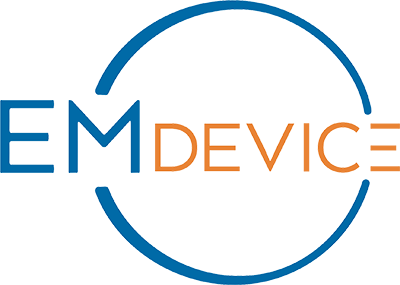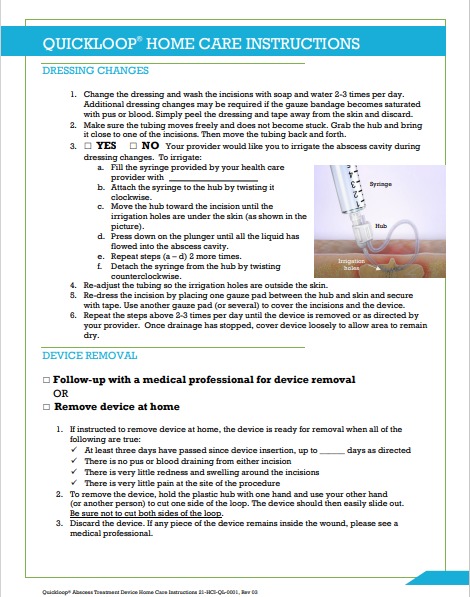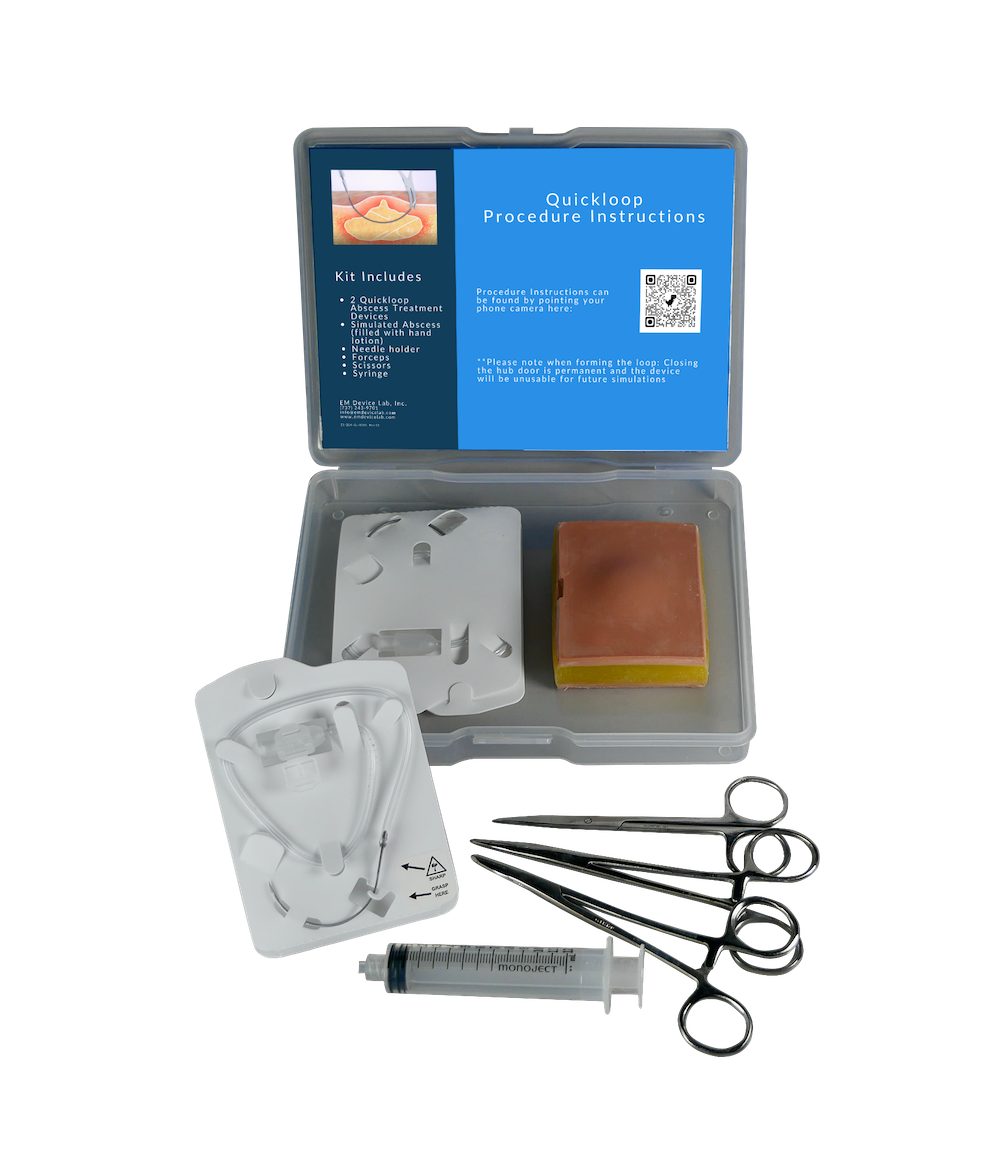Quickloop In-Service
This resource page contains information on how to use Quickloop to treat patients with abscesses. If you prefer to have a live training event, please click below to schedule an online educational session. Many clinicians also find simulation kits to be useful in training.
Step 1: Assemble Supplies
Step 2: Watch Videos
This video provides step-by-step instructions to successfully perform the Quickloop technique
This video summarizes the clinical evidence that demonstrates why the loop technique is now considered to be the preferred method for abscess treatment
This video will instruct you on how to successfully perform the Quickloop procedure.
00:00 - Introduction
00:17 - In-Service Objectives
00:43 - Overview of the Loop Drainage Technique
01:22 - Loop Technique Clinical Evidence
01:58 - Supplies Needed to Perform the Quickloop Technique
02:34 - Quickloop Components
03:32 - Use of Ultrasound, Sedation and Antibiotics
04:12 - The Quickloop Procedure
09:50 - Homecare Instructions
11:28 - Frequently Asked Questions
This video summarizes the clinical evidence that demonstrates why the loop technique is now considered to be the preferred method for abscess treatment.
00:00 - Introduction
00:23 - Abscess Frequency, Past Treatment Techniques
00:58 - I&D Technique
01:22 - The Loop Technique
02:04 - Loop Technique Clinical Studies
05:05 - Conclusion
Step 3: Review Frequently Asked Questions
Local anesthesia to the skin where the device will enter and exit, as well as the wall of the abscess, can be helpful to control pain during the procedure.
If the abscess collection appears to be fluctuant, with no loculations that may require instrumentation, local aesthetic injection at the entry and exit points for the device may be adequate. A standard regional block may be preferred if a need for significant instrumentation is anticipated. Using topical anesthetic such as LMX prior to injection may be helpful, especially in children.
Additional Resources
If you have questions about Quickloop or the Quickloop procedure, or would like to schedule a live session, please contact us.



